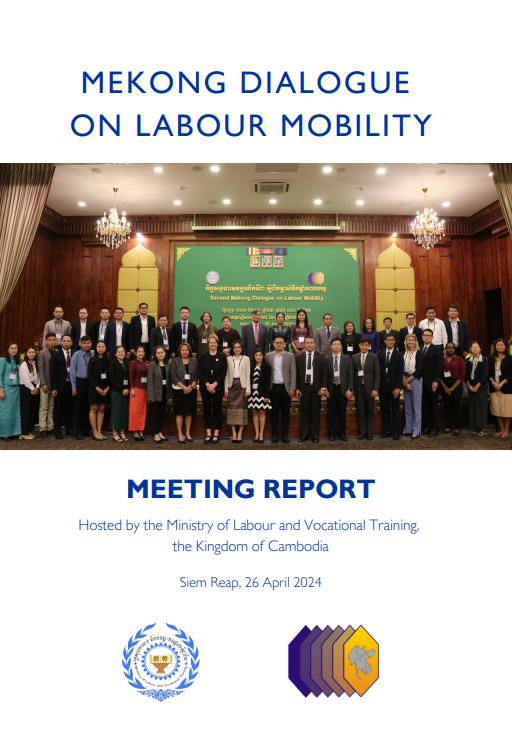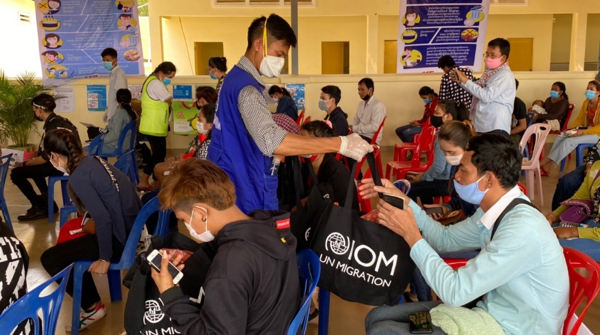
Second Mekong Dialogue on Labor Mobility Meeting Report
On 26 April 2024, the Kingdom of Cambodia hosted the second Mekong Dialogue on Labour Mobility, chaired by H.E. Mr. Hou Vudthy, Secretary of State of the Ministry of Labour and Vocational Training of Cambodia. This dialogue was conducted within the framework of the Greater Mekong Subregion (GMS) Economic Cooperation Program and with the support of the Asian Development Bank (ADB) and the International Organization for Migration (IOM). Its primary aim was to enhance cooperation on labor mobility through a multi-stakeholder approach among the Mekong countries and development partners

